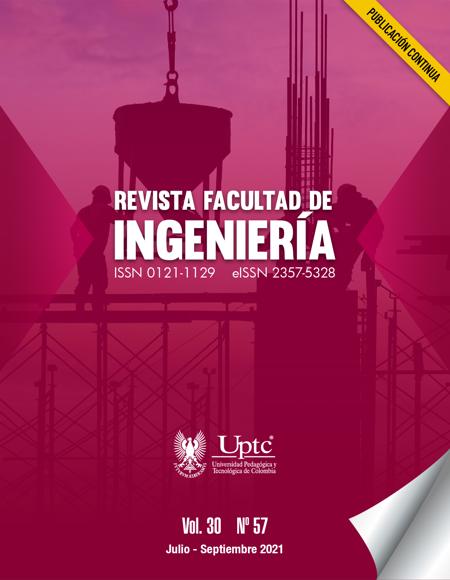DevOps in Industry 4.0: A Systematic Mapping

Abstract
DevOps is the acronym for the integration of development and operations, which allows the improvement of communication and collaboration. Likewise, its objective is to help organizations develop software products and services quickly without sacrificing quality or cost. Additionally, its focus is on development, integration, delivery, release, testing, and continuous monitoring through the automation of tasks. Industry 4.0 solutions seek to digitize the industries’ processes and services to make them faster, safer, and more efficient through new technologies. These developments are not unrelated to the practices proposed by DevOps. This article presents a systematic mapping of the literature to identify the adoption prospects of DevOps practices for Industry 4.0 solutions reported in the literature. This work gathers proposals that show the importance and relevance of adopting DevOps to develop solutions for Industry 4.0. Organizations must prepare to address Industry 4.0 solutions; this will allow them to survive and prosper in the era of the Fourth Industrial Revolution. Therefore, it is necessary to conceptualize and adopt a solution development model that enables them to address these challenges and DevOps with its principles and standards, which would reduce operating costs and improve the service levels, efficiency, and administration of the different areas.
Keywords
DevOps Industrial, DevOps and Industry 4.0, Systematic Mapping, Agile Development, Industrial software
Author Biography
Elizabeth Suescún-Monsalve
Roles: Supervision, investigation, writing - revision and edition.
César-Jesús Pardo-Calvache
Roles: Supervision, investigation, writing - revision and edition.
Sergio-Andrés Rojas-Muñoz
Roles: Methodology, design, validation, writing - original draft.
Alejandro Velásquez-Uribe
Roles: Methodology, design, validation, writing - original draft.
References
- L. Garcés, L. Egas, “Evolución de las Metodologías de Desarrollo de la Ingeniería de Software en el Proceso de la Ingeniería de Sistemas,” Revista Científica y Tecnológica UPSE, vol. 1, no. 3, e29, 2013 https://doi.org/10.26423/rctu.v1i3.29 DOI: https://doi.org/10.26423/rctu.v1i3.29
- J. Gamboa, “Evolución de las Metodologías y Modelos utilizados en el Desarrollo de Software,” INNOVA Research Journal, vol. 3, no. 10, pp. 20-33, 2018 DOI: https://doi.org/10.33890/innova.v3.n10.2018.651
- A. Cadavid, J. Martínez, J. Vélez, “Revisión de metodologías ágiles para el desarrollo de software,” Prospectiva”, vol. 11, no. 2, pp. 30-39, 2013 DOI: https://doi.org/10.15665/rp.v11i2.36
- O. Pérez, “Cuatro enfoques metodológicos para el desarrollo de Software RUP – MSF – XP – SCRUM,” Revista Inventum, no. 10, pp. 64-78, 2011. https://doi.org/10.26620/uniminuto.inventum.6.10.2011.64-78 DOI: https://doi.org/10.26620/uniminuto.inventum.6.10.2011.64-78
- E. Uribe, L. Ayala, “Del manifiesto ágil sus valores y principios,” Scientia et technica, vol. 13 no. 34, pp. 381-386, 2007
- J. Humble, G. Kim, Accelerate: The science of lean software and devops: Building and scaling high performing technology organizations, IT Revolution, 2018.
- M. Navarro, X. Sabalza, “Reflexiones sobre la Industria 4.0 desde el caso vasco,” Ekonomiaz: Revista vasca de economía, no. 89, pp. 142-173, 2016
- G. Kim, J. Humble, P. Debois, J. Willis, The DevOps Handbook: How to Create World-Class Agility, Reliability, and Security in Technology Organizations,. IT Revolution, 2016.
- K. Petersen, R. Feldt, S. Mujtaba, M. Mattsson, “Systematic mapping studies in software engineering,” in 12th International Conference on Evaluation and Assessment in Software Engineering (EASE), 2008, pp. 1-10. https://doi.org/10.14236/ewic/EASE2008.8 DOI: https://doi.org/10.14236/ewic/EASE2008.8
- B. Kitchenham, “Systematic review in software engineering: where we are and where we should be going,” in Proceedings of the 2nd international workshop on Evidential assessment of software technologies, 2012, pp. 1-2. https://doi.org/10.1145/2372233.2372235 DOI: https://doi.org/10.1145/2372233.2372235
- D. Budgen, M. Turner, P. Brereton, B. Kitchenham, “Using Mapping Studies in Software Engineering,” in Proceedings of PPIG 2008, 2008, pp. 195–204.
- M. Petticrew, H. Roberts, Systematic Reviews in the Social Sciences: A Practical Guide, Malden, USA: Blackwell Publishing. https://doi.org/10.1177/00380385080420051403 DOI: https://doi.org/10.1177/00380385080420051403
- R. Jabbari, N. Bin, K. Petersen, B. Tanveer, “What is DevOps?,” in PXP ’16 Workshops: Scientific, 2016, pp. 1–11. DOI: https://doi.org/10.1145/2962695.2962707